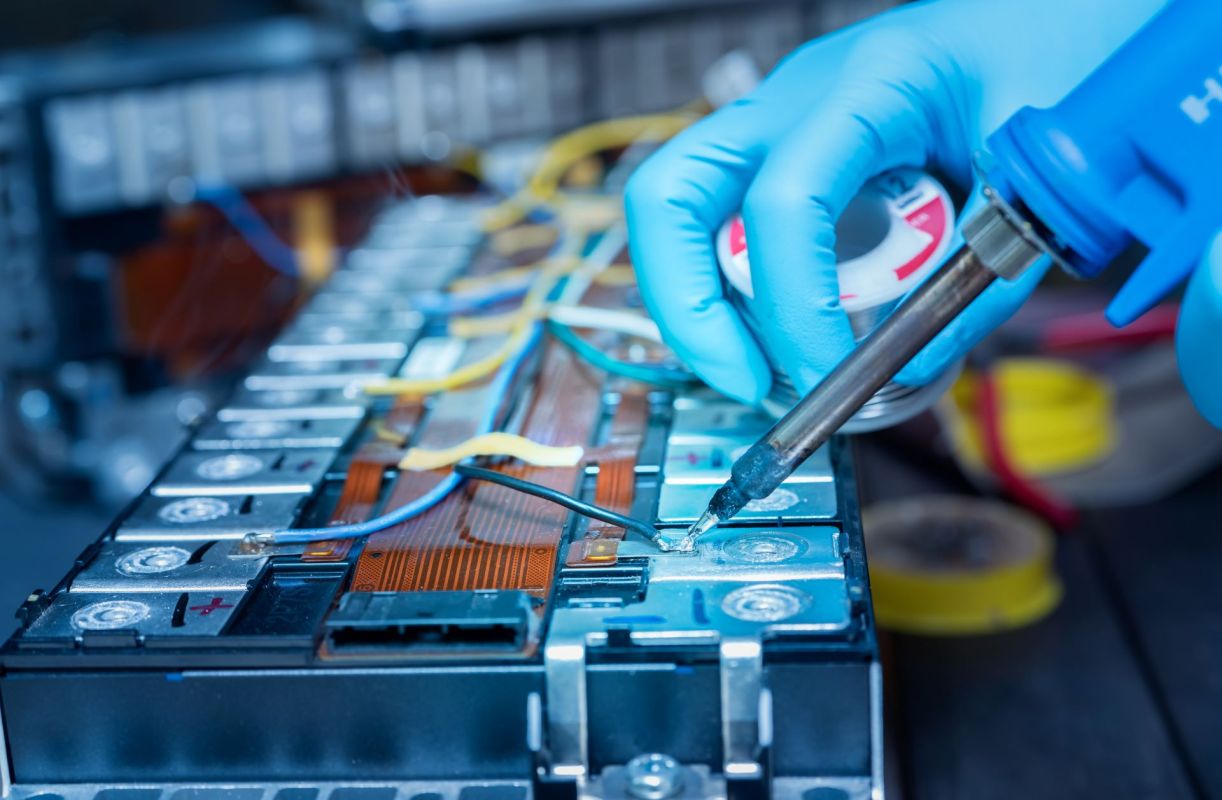Great news for prospective EV buyers: Scientists at Lawrence Berkeley National Laboratory have developed a new type of polymer coating that could completely change the way electric car batteries are made, making them cheaper and longer lasting at the same time.
The polymer coating is called HOS-PFM, and it works by conducting both electrons and lithium ions simultaneously. The specifics are pretty complex for those of us that aren't atomic scientists, but the upshot is that it works really well with electrodes made out of aluminum and silicon, two materials that are cheap and abundant but wear out more quickly than the more expensive graphite electrodes (which most EV batteries rely on currently).
HOS-PFM, however, could change that. The scientists behind its development say that it could extend the average lifetime of a lithium-ion battery from 10 to 15 years. And by using less expensive materials, car companies could quickly increase the number of cheap EV models available on the market.
"The advance opens up a new approach to developing EV batteries that are more affordable and easy to manufacture," Gao Liu, one of the project's lead scientists, said in a statement shared by the laboratory.
EVs are undoubtedly more friendly to the environment than traditional, dirty-energy-powered cars, which produce planet-warming gases at an alarming rate. However, lithium mining, which is necessary to produce new electric car batteries, comes with its own set of environmental problems. That's why scientists are working hard to figure out ways to make the lithium-ions we produce as long-lasting, and with as little environmental impact, as possible.
And HOS-PFM isn't the only scientific breakthrough that could change the way lithium-ion batteries are made. A Chinese company recently came out with a sodium-ion battery, bypassing the need for lithium mining entirely. Meanwhile, other companies are making strides in the burgeoning field of lithium recycling.
Join our free newsletter for weekly updates on the coolest innovations improving our lives and saving our planet.









